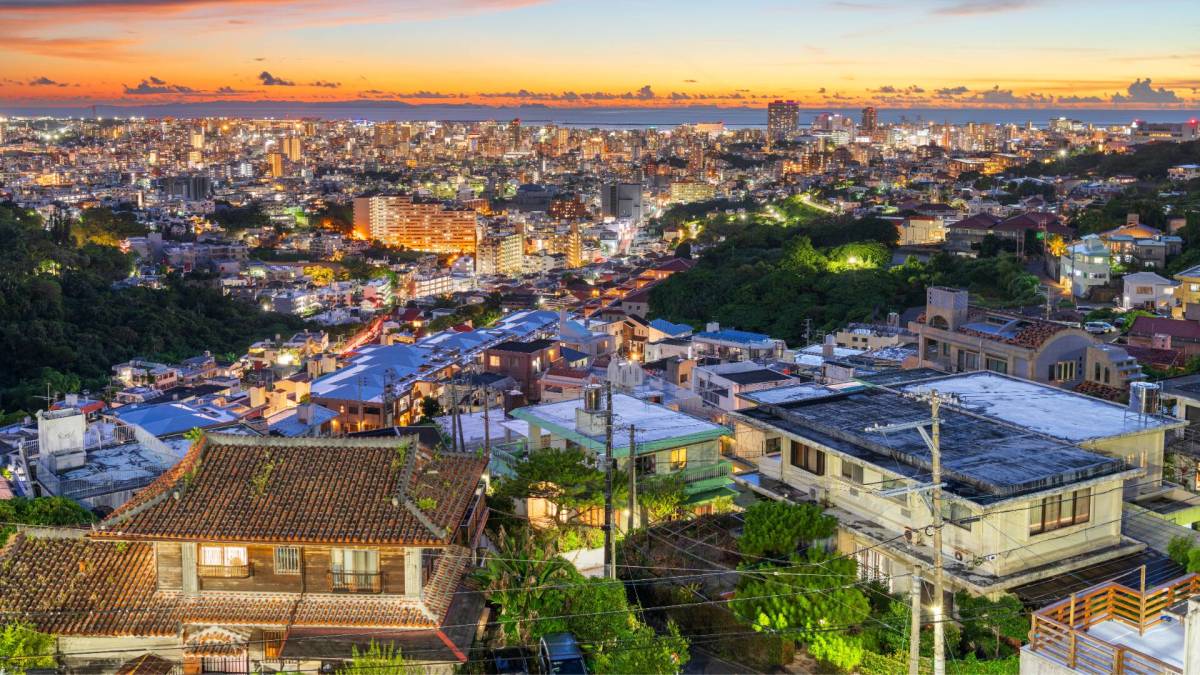It was initially used to joke about how locals should tax tourists who cause trouble in their cities.
Now the term “tourist tax” is used to refer to both the entry fees that some countries charge international visitors directly at the airport and the daily levy that is added to one’s hotel or short-term rental stay in many European capitals.
Cities such as Venice have also introduced a daily visitor fee for those coming into the city during the most popular weekend and holiday periods. In 2025, the €5 fee was charged on weekends between April 18 and July 27.
As more cities battle with the impact of growing numbers of tourists, the tourist tax has had a domino effect whereby it is introduced by more and more destinations.
A chain of islands known for a tropical climate and geography very different from mainland Japan, Okinawa has in recent years also been seeing much higher numbers of tourists from outside the country.
The new Japan hotel and accommodation tax: How much you need to pay and what to know
This month, local lawmakers have approved an accommodation tax similar to the one introduced by larger cities such as Tokyo and Kyoto earlier in the year.
To be applied from April 2026, the fee will add 2% to the cost of one’s stay at local hotels or inns with some exceptions for school, religious, and other types of organized tours.
For those staying at the most high-end hotels, the fee will be capped at 2,000 yen ($13.45 USD) per night and comes after the Junglia Okinawa theme park opened last summer.
The park is expected to bring in even larger numbers of tourists from both within and outside Japan, while the new accommodation tax is expected to pump over 7.8 billion yen into the local economy per year.
Related: A new country just tripled the tax it charges tourists
The generated funds have been earmarked for preservation of local natural sites, recruitment of tourism and hospitality employees from other regions of Japan, and enhancing safety measures at popular destinations.
The proposal was passed unanimously by the local government in the largest namesake city of Okinawa. Ishigaki City, Miyakojima City, Motobu Town, Onna Village, and Chatan Town also confirmed plans to introduce levies mirrored after those passed by the central government.

Image source: Shutterstock
What is a tourist tax and what does it fund?
When similar levies were passed by other cities or countries, the funds have traditionally been put toward preservation of sites that see the highest numbers of tourists. Some, however, have also chosen more creative designations.
As use of the Welsh language is in steep decline with younger generations, a similar tax on hotel stays in Cardiff that is set to be introduced by 2027 will be partially allocated to linguistic preservation.
More on travel:
- United Airlines CEO gives stark warning on Olympic Games
- Another regional airline cancels all flights, no refunds
- US government issues sudden warning on Switzerland travel
- Another country just issued a new visa requirement for visitors
In Norway, a similar tax will go toward building infrastructure in traditionally remote areas like the Lofoten Islands.
Amid rising numbers of tourists, that part of the country has struggled with increased waste and travelers who relieve themselves in nature — and in some cases, locals’ private property — amid a dearth of available bathroom facilities on remote trails and long stretches of road.
(The Arena Group will earn a commission if you book a trip.)
Please make a free appointment with TheStreet’s Travel Agent Partner, Postcard Travel, or email Amy Post at amypost@postcardtravelplanning.com or call or text her at 386-383-2472.
Related: US government issues sudden warning on Peru travel
#city #slapping #tourist #tax